French musician, Nicolas Muller, combines video game music palettes with dark synth.
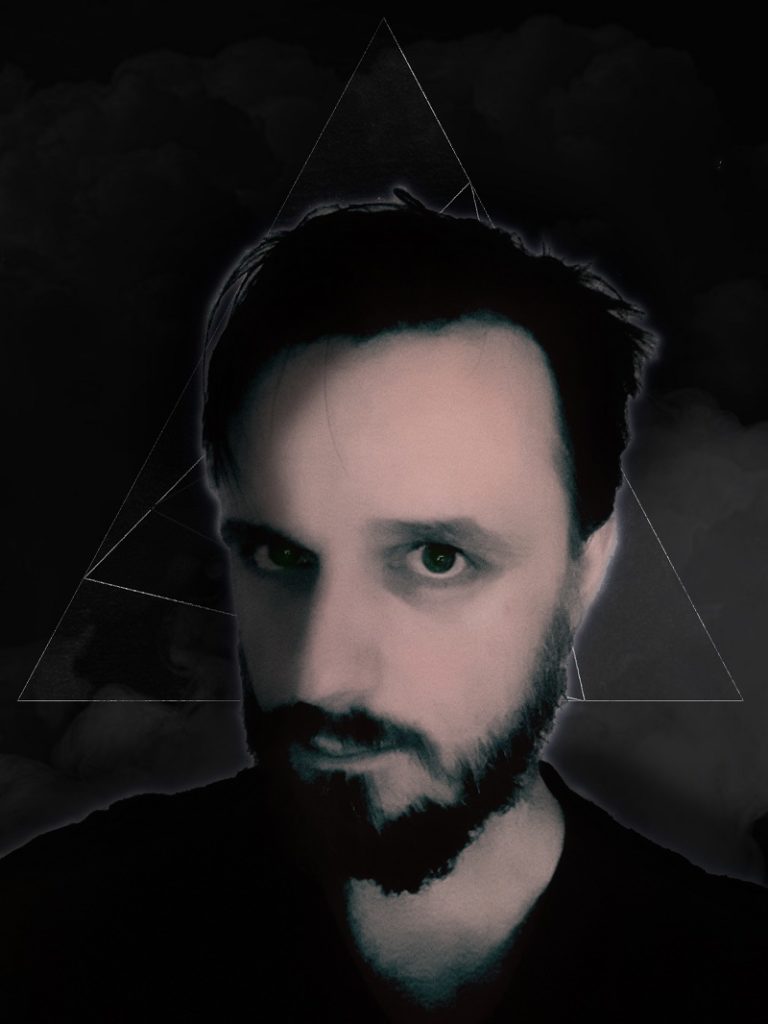
2/17/19 – Continuing the practice of reaching out and connecting with SYNTHWAVE musicians around the globe, recently we spoke with Nicolas Muller of Terminal Khaos Builders (TKB) and Helioss.
Synthwave is a burgeoning genre of music that incorporates electronic soundscapes, occasionally acoustic or electric instruments, and is heavily influenced by retro synthesizer music. Drawing wholesale from pop culture of the 1980’s, including movies, video games, and fashion, it has been evolving into it’s own unique art form.
As with trends in any creative field, not all artisans are created equal. Some people just work harder… think, 99% perspiration and and 1% inspiration, thanks to Mr. Edison. Electronic music is no different. There are individuals who chase whichever fad is popular and those who dare to try new ideas, struggling to persevere when those ideas inevitably fail.
Muller’s blend of electronic music mixes tones reminiscent of 8-bit Nintendo games with dark and apoplectic sounds of heavier categories of EDM. Add in some European classical harmonies and huge drums and bass patterns, and you get Terminal Khaos Builders.
TKB’s first full length album, The Endless City, is now available for listening and purchase. We recommend you do both.
Slickster: Nico, thanks for talking to Slickster Magazine. On your facebook page, there are a lot of photos of you playing guitar. I take it that electric guitar is your first, primary, instrument?
Nico: Hello Slickster ! Yes, I’ve been a guitar player in the French metal landscape for years – my main project is Helioss (symphonic black/death), we will release a new album this year. Guitar is my primary instrument, which I have been playing for years. I play a little bit of bass too, but not at a great level. I write mainly with guitar in hands, even if it is for a different instrument – like piano, orchestra or violin.
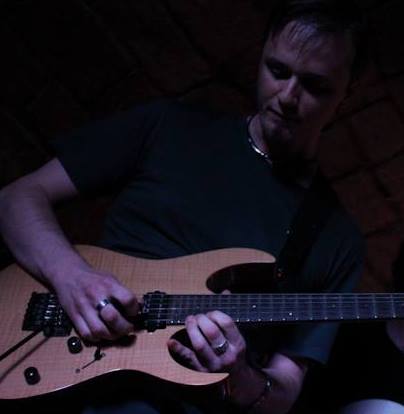
Slickster: You are from France, well known for it’s contributions to electronic music. We have interviewed quite a few French musicians and always ask a similar question – Why is there such a strong correlation between French musicians and electronic music?
Nico: To be perfectly honest, I have strictly no idea. Indeed, we have some very talented electronic music artits, some of them well known in the world, like Jean-Michel Jarre, Daft Punk, David Guetta, Justice… It is sometimes called “the French touch”, even if I think that no one really knows what it means.
I guess that there are some communities that grows together in a small area and members of this will influence each other in a very creative way. That may explain why some major musical movements often start in a single country (or city) before spreading all over the globe. For example, the New Wave of British Heavy Metal, the black metal from Norway or the incredible Californian death metal scene in the 90s.
So I guess that the so-called correlation between french and electronic music is just a group of people from the same area (Versailles was a leading city for this music back at the time) that started some kind of electro wave in France.
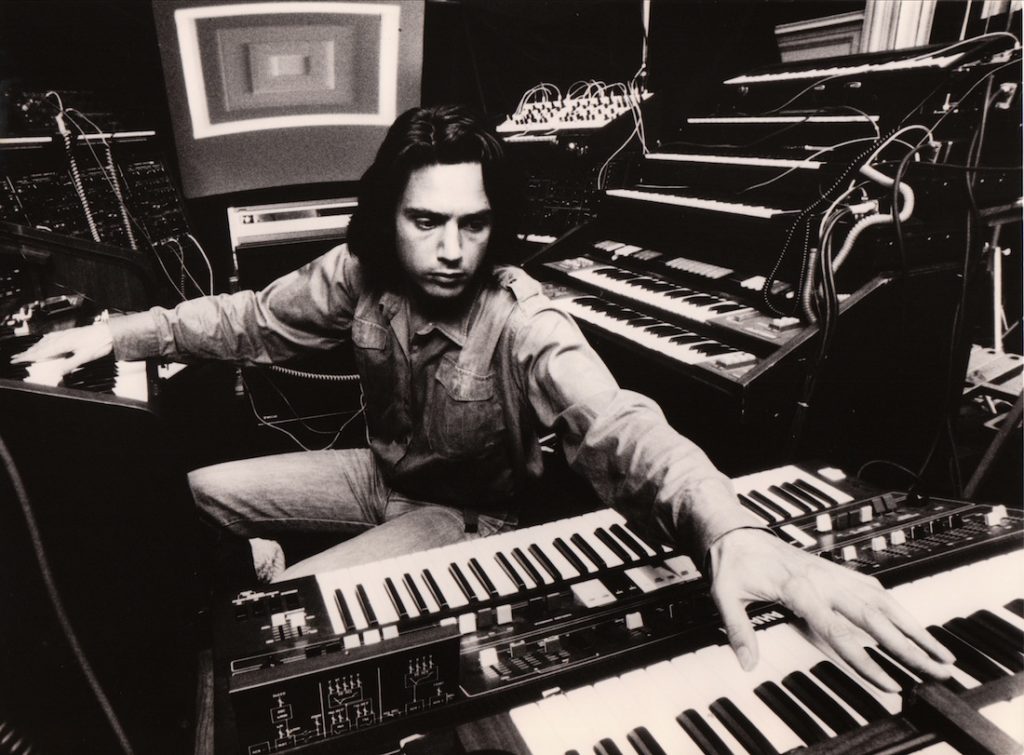
Slickster: Good or bad, France has been in the international news a lot lately for the Yellow Vest Protests. What is your opinion of the protests, and have any of the protests/riots personally effected you?
Nico: That’s a difficult subject because things are far from being over. The “Yellow Vest” are still in the street on a regular basis, involved (for a minority of them) in some fights with the police which are intensively showed in the medias, and the government started a great debate to try to bring peace back – which doesn’t seem to work pretty well.
I’m personally not a protester, I have no strong conviction in politics, but as a citizen this is really shocking to see how the leaders of our nations (mainly Europe, but not exclusively) are really fucking up so many things: ecology, equality, education, culture… so at some point I think that the people are starting to get really upset – especially when you don’t have a lot of money to buy food, clothes and other basic needs. I have no idea where all that will lead us, but this is both interesting and disturbing.
Slickster: You’re new album, The Endless City, caught my attention as a fresh entry into the synthwave genre. My first impression was, “this is chip tune [8-bit video game music] meets Justice.” As I dug deeper into the album, and on second and third listening, I heard more layers to your compositions. There are strong elements of carefully crafted melodies, harmonies and arrangements.
Certain chordal progressions in your new album used much more advanced harmony, for example diminished chords. This leads me to believe that you’re a student of Classic European music theory. Can you elaborate on this?
Nico: You are perfectly right, even if I won’t call myself “a student”. Let’s just say that I have learned classical music at a very basic level. But as a musician, I grew up with two major influences: metal and classical music, especially baroque (Bach, Vivaldi, Scarlatti, Rameau…).
In the metal music, I love the energy, the violence, the aggressiveness and (for some bands) the virtuosic approach of the instrument – for example, in the guitar hero or the progressive scene. When I write music, I oftenly mix those both aspects. But I’m not a musical theorist, so I have to do countless tests and mistakes before reaching what I had in mind. I sometime see melodic or harmonic paths in my head, and with my guitar in hand I try to follow this road to go where my instinct tells me. There is no real planning or pre-established structures or harmonic construction when I start to write, I let things comes as they want, I do a lot of back and forth, I try, I delete, I change…
But yes, I like to complicate my music with different layers of harmony and complex structures, but in the end this is very important that the music talks easily and can be remembered. This is why I love baroque music era: it’s often highly elaborate but with strong and powerful melodies.
My third influence is, as you noticed, video game music, especially the 8/16 bits era. As a kid, I grew up with Master System / Megadrive game which leaves me with a lot of musical memories, and those very particular sonorities are still touching me.
So, I guess that all those influences are now part of my music. Sometimes, in a very obvious way (“I’m Going Into Madness!”, for example, with the baroque harpsichord which slowly becomes chiptunes sonorities – it symbolizes the coherent transition between worlds 300 years apart that I both love.)
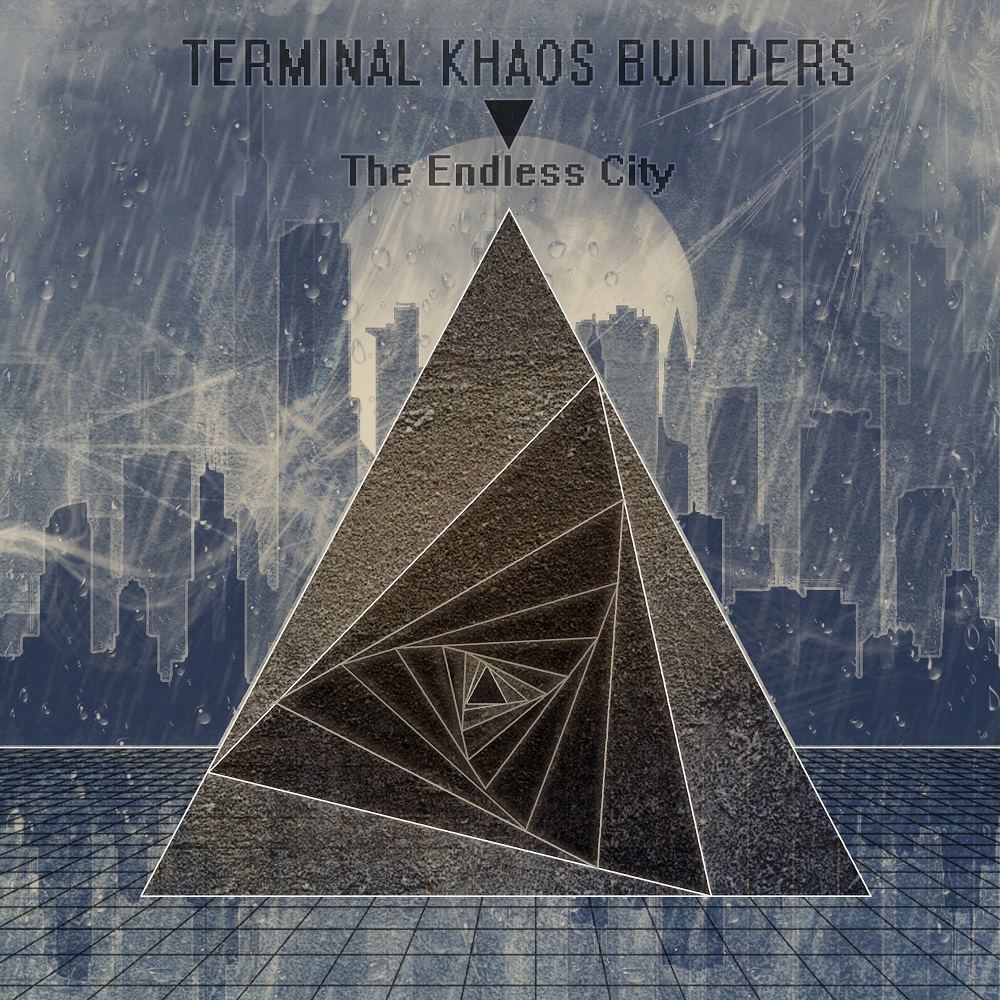
Slickster: In classic NES titles, many feature awesome, memorable melodies within the game OST. Some, but not everyone in synthwave, craft decent melodies, but others focus more on soundscapes or drum beats. Your music, while not ignoring the other parameters of excellent composition, noticeably incorporates melodies that could “stand on their own.” How do you write the melodies for your songs, and is there a favorite on The Endless City?
Nico: You’re right. I’m not good at creating soundscapes or ambient music – I leave this to some other talented musicians. But, I often have plenty of ideas for melodies, musical arrangements or leads. I think this is the core of the music, what is left in your memory when you stop to listen a song – the haunting echo of musical art.
I have no particular technique to compose, it comes layer after layer. Most of time, I start with some chords progression on the guitar and the bass, then some orchestral arrangements upon which I add the melodies when needed.
It’s always hard to pick a particular song or melody in your own creation, but if I have to I would choose the first part of the last song “She Said That The City Is Lost” : this song combines the different aspects I love, with complex arrangements, rhythms variations and dark melodies.
Slickster: How long has TKB been in existence? Has there always been a project like this on your desk, perhaps under different names?
Nico: Terminal Khaos Builders is in fact a new project of my own, so let’s say it is 6 months old (but it has been revealed less than a month ago). I really discovered the synthwave scene 2 years ago or so, with artists like Perturbator, Carpenter Brut, Dredd, Vulta and Master Boot Records (which I really love, the guy is insane).
So it was in my head, like “would I be able to do a synthwave album of my own ?”.
Back in October, I started to work on Terminal Khaos Builders, to learn some new softwares, and to write something different than usual. It was 5 months of intense work with high and low, but in the end I’m really proud of what I achieved. Hope you guys will appreciate it.
So far, I have a lot of other projects, but not in the synthwave style – Helioss is the most important, but some other are in progress.
Slickster: Do you, or TKB, ever do live performances?
Nico: No. I’m definitively not a man of live performances, and I do not plan to change this.
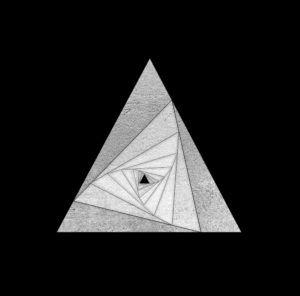
Slickster: Synthwave, in general, seems to be comprised mostly of a male audience. Do you find this to be true, or do you have an equal number of women who are interested in synthwave, outrun, vaporwave, chiptune, etc…?
Nico: If I have to make a guess, I would say that a lot of synthwave musicians have been at some point deeply influenced by video games and the sci-fi universe. When I was a kid or a teenager, the majority of girls didn’t show a lot of interest in any of those universes. So, musicians of my age and the ones involved in this kind of music are mostly men.
But things are now changing. Because video games and sci-fi universes are now so popular within the youth (boys and girls) that I bet (and hope) that more and more girls will be involved in this particular creative universe.
Obviously, I believe that men and women deeply share the same potential to create or appreciate all kinds of music (including metal, of course). Maybe there are some social constructs that tend to separate us when it comes to stuff like sci-fi, but once again, I have noticed that things are changing. It’s good to see that the old stereotypes (little boys play the war, little girls with the doll…) are slowly becoming obsolete.
Slickster: Why do you believe that synthwave has gained the international following that it has?
Nico: It’s hard to say, but I would say that this is now a well established occidental/asian music. Most of the synthwave artists are coming from the US, Europe/Russia or East Asia. Is there some synthwave artist from Africa, Middle East, India or South America ? Probably, but for the same reasons that there is not (yet) a lot of rock/metal bands from those areas, some vast majority of the world are not really concerned about synthwave.
But here again, I believe that things are slowly changing, thanks to the internet and the globalization (yes, there are some good in it, despite all the problem that comes with it). But in Europe, at least, yes: synthwave is now a mainstream music style, for the best or the worst, with live shows in big places, festivals, posters in the subway halls… More and more artists are showing up (and I’m nothing more than one of them), and there is more and more people to listen to them.
Slickster: What advice would you like to give to your younger self or a young musician/artist who is just beginning in their career?
Nico: I would not pretend to give anyone (even the younger me) any advice other than “have fun” and “keep trying” ! I’m just an amateur musician, I don’t earn my life doing music, so for me this is just fun and passion, without too much stress or real responsibilities. But music is much more than a simple hobby : it needs patience, dedication, a lot of time, sometimes money and it’s far from being easy every day. Hard work and a lot of pleasure, indeed !
Slickster: Ok, I know this question is a hard one…. Name five of your all time favorite video games!
Nico: Ah ah, dude… how could I ? But OK, let’s try. In no particular order :
-Portal 1&2 : perfect ambiances, sci-fi sounds and landscapes.
-Streets of Rage II : ah, the memory ! So groovy, disturbing, perfect soundtrack for urban violence!
-Super Meat Boy : Danny Baronowsky is a real genius ! Powerful melodies, epic rhythm, epileptic sounds… perfect when you have to die and retry thousands of times per minute to finish a fuckin twisted level.
-Heroes of Might & Magic III : so beautiful, with a strong musical theme for every city or situation.
-Hotline Miami : the amazing soundtrack that contribute to enlight the synthwave scene. Not sure it’s really in my top 5 but hey, it’s in the topic.
Slickster: Nico, thanks again for talking with Slickster about your new music and best of luck in 2019 and beyond. Lastly, we want to open it up for you – What message would you like to share with the world? What is the most important thing you want to tell people right now in 2019?
Nico: Music is the best therapy. Sad? Listen to music. Angry? Listen to music. Depressed? Listen to music. Feeling alone? Listen to music. Don’t want to listen music anymore? Create your own music!
A big thank to you and your team at Slickster Magazine for giving me the opportunity to talk with you ! And of course a big thank to everyone who listened to “The Endless City” – it’s been quite a journey.
Links :
Terminal Khaos Builders
https://terminalkhaosbuilders.bandcamp.com/
https://soundcloud.com/terminalkhaosbuilders
https://www.facebook.com/terminalkhaosbuilders/
Helioss
